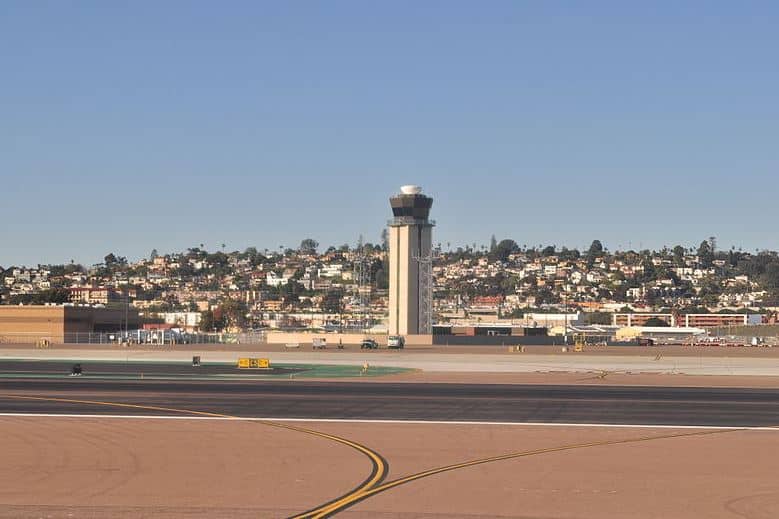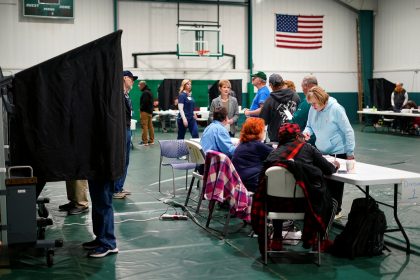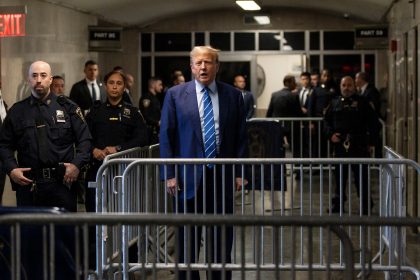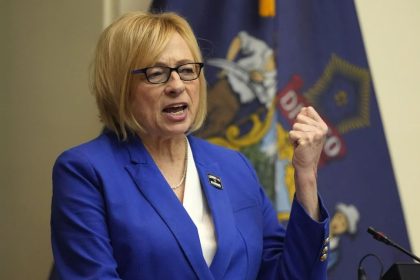California to Receive Billions for Highways, Airports, and More from Infrastructure Package

SACRAMENTO, Calif. — The bipartisan infrastructure package is drawing closer to finalization and California residents are anticipating improvements to local roads, airports and more.
Although the Golden State boasts the nation’s largest economy, a lack of prior investments in public infrastructure has led to a multitude of issues. For instance, more than 14,220 miles of highway and 1,536 bridges are in poor condition, and commute times have increased by 14.6% since 2011.
On average, California drivers spend nearly $800 on car repairs annually due to driving on roads in need of upkeep, according to White House data. Based on formula funding, Californians could expect to receive $25.3 billion for federal-aid highway apportioned programs and $4.2 billion for bridge replacement and repair over five years under the bill’s provisions.
“I’m particularly excited about the investments in safer streets, setting us on a path to be more climate-resilient, and upgrades to our airport,” San Diego Mayor Todd Gloria said during a press conference. “The ‘Safe Streets For All’ grant program will specifically allow local governments to help achieve our Vision Zero goals of eliminating traffic deaths and serious injuries … by investing in protected bikeways and safer walkways, we are literally going to be saving lives.”
In 2020, three of the nation’s 25 busiest airports by total passenger boardings were in California: Los Angeles International Airport ranked fifth, San Francisco International Airport ranked 15th and San Diego International Airport was 24th.
Approximately $1.5 billion over five years derived from the Infrastructure Investment and Jobs Act would go towards airport modernization and development in the state.
Further, Californians who commute via public transport spend an extra 66.6% of their time doing so. Roughly, 16% of transit vehicles in the state are past their useful lifespan, according to White House data. Should the bipartisan infrastructure package be enacted, California could expect $9.45 billion over five years to improve public transportation options in the state.
Portions of those funds are expected to be earmarked to bolster ongoing high-speed rail construction throughout the state.
“Every day, Americans are charged taxes and fees they are told [will] provide for the nation’s infrastructure. And while citizens send Washington billions of dollars every year, it somehow never gets invested in the way taxpayers are promised,” Rep. Darrell Issa, R-Calif., said in a written statement responding to the passage of the Infrastructure bill in the Senate. “All the while, our country’s roads, bridges, ports, tunnels, waterways and other physical and industrial systems only fall into greater disrepair.”
“According to published reports and nonpartisan analysis, only 23% of the bill’s $548 billion in new spending will go towards core infrastructure while spending billions on new environmental programs, as well as rail and transit that favors only coastal regions,” Issa said.
Issa continued, “While there is broad consensus on both sides of the aisle, in both houses of Congress and throughout the nation to invest in America’s essential infrastructure, the Senate deal does not meet this standard. I will not be supporting this legislation, and I am encouraging my colleagues to join me in opposition.”
Under the bill’s provisions, California would receive a minimum allocation of $100 million to help provide broadband coverage across the state and 27% of people in California will be eligible for the “Affordability Connectivity Benefit” that assists low-income families in affording internet access.
Based on the traditional state revolving fund formula, Californians would receive $3.5 billion over five years to improve water infrastructure by eliminating lead service pipes and lines.
The bill would also apportion sums of money to states to aid against cyberattacks and the effects of extreme weather and climate change. Under the bipartisan package’s distributions, California will expect to receive $40 million over five years to protect against cyberattacks and $84 million to mitigate wildfires.
The bill also allocates another $3.5 billion national investment for energy grid weatherization in order to reduce energy costs. In the last decade, California witnessed 16 extreme weather events that cost the state as much as $50-100 billion in damages.
“Certainly we recognize, as so many do, that investments in rail, in water infrastructure, in grid resilience, [and] in climate mean jobs and that’s the pathway for us to an equitable economic recovery,” San Jose Mayor Sam Liccardo said during a press conference. “But in concrete terms here in San Jose, that federal investment in rail, for example, ensures that we can get a [Bay Area Rapid Transit] extension built, which could start construction in just a matter of a few months. That [extension] will ultimately carry more than 100,000 riders from here to downtown San Jose connecting the largest city in the region to San Francisco, Oakland, and the rest of the BART system.”
Liccardo continued, “[It will] enable us to build out Diridon Station, which will ultimately become the busiest multimodal facility in the region with seven different transit lines including a high-speed rail line that will connect 5 million people of the Central Valley to Silicon Valley.”
Lastly, another principal intention of the infrastructure bill is the development and expansion of the nation’s electric vehicle charging network. In California, this means the state would get $384 million over five years to support the expansion of EV charging throughout the state’s interstate highway system.






















